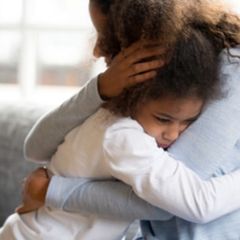Transforming Lives with Joy and Play

The Power of Emotional Connection in Parent-Child Relationships
As a parent, I often saw myself as my child's teacher; however, soon, I discovered that my child was my teacher. I learned that sharing emotions build connections with others and our children.
"Communication that involves an awareness of our own emotions, an ability to respectfully share our emotions, and an empathetic understanding of our children's emotions lay a foundation that supports the building of lifelong relationships with our children." (Siegel et al. 2003)

"As parents, "when we are aware of our emotions and can share them with our children, our daily lives strengthen because it is through the sharing of feelings that we deepen our connection with our children." (Siegel et al.2003)

"Emotional connections create meaning for the child and affect his understanding of both parent and himself." (Siegel et al.2003)

Play therapy stands out as a transformative approach in enhancing emotional and psychological well-being in children and teenagers. Far beyond mere play, it's a therapeutic avenue that enriches connections, catalyzes development, and facilitates healing. This therapeutic journey underscores the importance of love, care, and improvement in parent-child relationships.
Play therapy is a specialized form of therapy that leverages play as a medium for communication and healing, aimed at helping children overcome psychosocial challenges. This approach fosters better social integration, growth, and development by tapping into play, the natural language of children. It allows them to express feelings, experiences, and thoughts in a familiar and comforting manner.
The impact of play therapy on a child's development is profound. Emotionally, it equips children with the ability to express and manage their feelings, leading to enhanced emotional intelligence. Behaviorally, it addresses issues, encouraging the adoption of positive behaviors. The therapy also plays a pivotal role in fortifying parent-child bonds, offering parents insights into their child's inner world through shared play sessions. Moreover, it boosts self-esteem, providing children with a sense of achievement and self-worth through their exploratory and creative play activities.

"When faced with challenging behavior's, look for the corresponding strengths and
focuses
on
nurturing that gift while providing gentle guidance and cooping techniques for the
challenging
areas.
That is the essence of working with, instead of against our children"
L.R Knost
"Emotion is the process of integration that brings self organization to the mind.
Integration may be at the heart of a sense of well being within ourselves and in
our
relationships with our children and others. How emotion is experienced and
communicated may be fundamental to how we come to feel a sense of vitality and
meaning in our lives"
(Siegel et al.2003)

